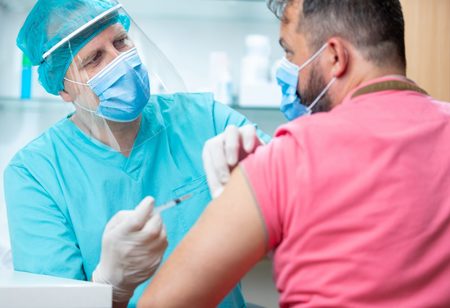
Western Union Foundation Launches Programs to Provide Vaccine Education & Train Workforce in Q1, 2021

 The Western Union Foundation has announced its programs for first-quarter 2021. The foundations program is to invest over $1.25 million to mobilize youth to access jobs in the healthcare industry, assisting with COVID-19 vaccine education and distribution as well as to enable economic recovery through the workforce training. However, this investment extends the Western Union Foundation’s Opportunity beyond Borders three-year $ 15 million commitment to offer migrant and young adults the resources to obtain sustainable employment and to grant relief and preparedness for crises.
The Western Union Foundation has announced its programs for first-quarter 2021. The foundations program is to invest over $1.25 million to mobilize youth to access jobs in the healthcare industry, assisting with COVID-19 vaccine education and distribution as well as to enable economic recovery through the workforce training. However, this investment extends the Western Union Foundation’s Opportunity beyond Borders three-year $ 15 million commitment to offer migrant and young adults the resources to obtain sustainable employment and to grant relief and preparedness for crises.Elizabeth Roscoe, Executive Director, Foundation states, “The Western Union Foundation recognizes that this moment—as the global pandemic recovery effort begins in earnest—is a crucial one for the communities we serve. We are determined to do everything we can to keep people who are already on the margins from falling farther behind because they lack access to vaccines or opportunities to participate in the formal labor markets as economies progress toward recovery.”
In 2020, the first full year of Opportunity beyond Borders, the Western Union Foundation has invested over $6 million to aid 200,000 people in 33 countries.
However, the research has revealed a large portion of the population across many low-income countries is hesitant to get the vaccine, as they are not educated about the importance of the vaccine and logistical challenges to reach vaccine centers. The Aspen Institute and International Medical Corps would receive funds from the Western Union Foundation to counter these challenges.
In Kenya and India, the Aspen Institute would associate with leading community-based organizations to assist vaccine education and distribution efforts by skilling youth and women in the community in vaccine awareness, preparedness and access.
Likewise, in the Philippines, the International Medical Corps program would address vaccine hesitancy by educating people about vaccine awareness and coordinating transportation for vulnerable populations to vaccine centers.
In Pakistan, International Medical Corps would train volunteers in refugee villages to raise vaccine awareness and induce health and hygiene best practices.
Alongside, COVID-19 community resilience programs, the Foundation’s first-quarter investment plans for recovery for migrant and refugee communities of those being affected by lockdowns. Below mentioned are a few of the programs:
In Jordan and Lebanon, the Kiron Open Higher Education program would work with the most of the populations residing in refugee encampments and would provide skill-building opportunities to prepare individuals for and give access to career pathways.
In Mexico, the Whitaker Peace & Development Initiative would scale entrepreneurship programs by training young business leaders and incubating micro-businesses that offer essential services and products to their local communities.